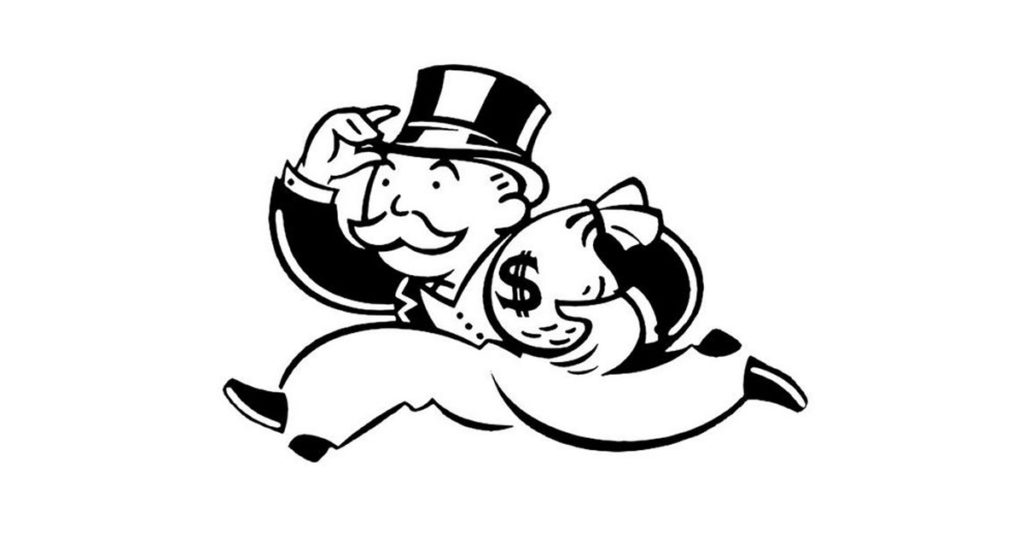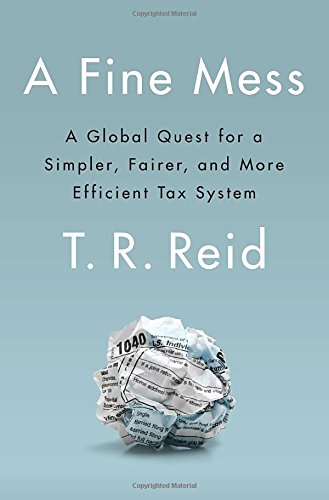
Overview
The U.S. tax code is a mess and is in dire need of updating. In A Fine Mess, T.R. Reid examines tax innovations around the world, our convoluted tax code, and how we can improve it. Imagine if we could lower income tax rates for everyone, cure the nightmare that is tax season, and raise more revenue for the government. This ideal system would also work to reduce inequality and boost investment at home. Sound too good to be true? Luckily, it is indeed possible.
To achieve this system, the U.S. would need to abolish the current tax code and start anew. When it comes to our interminable tax code that no one fully understands, small changes won’t do. Exactly as President Ronald Reagan did in the mid-1980s when he teamed up with the liberal Speaker of the House Tip O’ Neill, you have to build a new tax code from the ground up. It is the only way to create meaningful reform.
The Tax Code of 2018
The new tax code should be one that is perceived as more fair because the only thing people want more than low taxation is just taxation. It should adhere to BBLR, or Broad Base-Low Rate, principles. Surprisingly, there is near unanimous endorsement of BBLR by economists (who rarely reach consensus on anything). Many countries have implemented BBLR, but New Zealand’s tax code serves as Exhibit A for this system.
The essence of BBLR is what’s called neutral taxation: the government is causing as few market distortions as possible because it eliminates credits, deductions, exemptions, subsidies, and the like for everyone. Indeed, businesses should make decisions based on business need, not tax benefits. Likewise, individuals should make personal financial decisions based on what is best for them, not because they are getting a deduction of some sort.
Implementing BBLR would mean eliminating deductions like the deduction due to charitable donations (which mainly benefit the wealthy, don’t increase charitable giving, and cost the government $50 billion annually), and the deduction for mortgage interest on homes, which reduces revenues $100 billion annually. Preferences for corporations would also be eliminated, but both the personal and corporate income tax rates would go down.

Fighting Inequality
In an age of skyrocketing inequality, the tax code must remain progressive and fair. Crucially, a secretary should not pay a higher rate than his billionaire boss who receives much of her income from capital gains. The boss, of course, is able to exploit loopholes in the tax code by hiring tax attorneys and accountants, something the secretary cannot do.
Unfortunately, this is something that happens; it is due to what’s called the “carried interest” loophole, and both Hillary Clinton and Donald Trump pledged to end it in the 2016 election. Interestingly, Reid dedicates an entire chapter to Capital in the Twenty-First Century and economist Thomas Piketty’s idea of a global tax on wealth. I covered Capital here.
There are a few other things our new tax code should do: implement a value-added tax (VAT); create an online tax return that takes a few minutes to complete; add a minuscule tax to financial activities like high-speed trading. I could go on, but I will leave the surprises to Mr. Reid.
Recommendation
I highly recommend A Fine Mess. Reid has accomplished something that few can claim: he made the topic of tax policy understandable and entertaining (seriously). I learned a lot, and I had fun reading this book. Hopefully, you and our legislators will read it, and by April 2018, we will have a simpler, fairer, and more efficient tax system.
